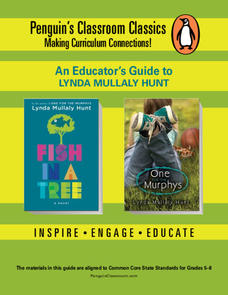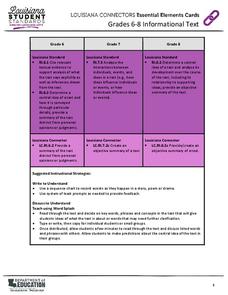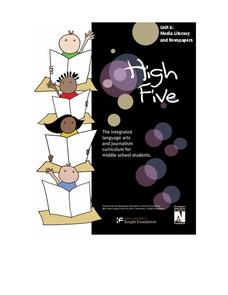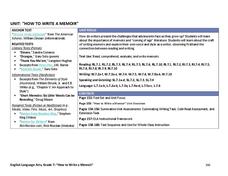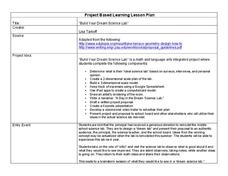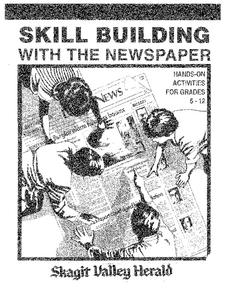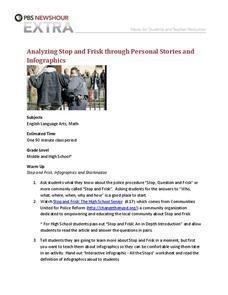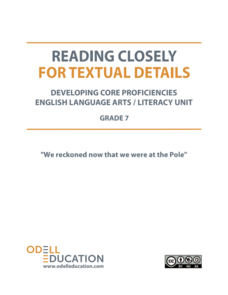EngageNY
Forming a Research-Based Claim: Analyzing Risks and Benefits for Stakeholder
Welcome to the World Café, where lively debate is on the menu! Scholars participate in the World Café protocol, moving between discussion groups to decide if the American Academy of Pediatrics should increase its adolescent screen time...
EngageNY
Contrasting Evidence: “Games Can Make a Better World” and “Video Games Benefit Children, Study Finds”
Anecdotes, analogies, testimonies, statistics. The most powerful arguments rely on multiple types of evidence. Scholars explore the topic as they read contrasting evidence about the benefits of video games. They complete Venn diagrams to...
American Battlefield Trust
Civil War Personalities: Individual Examples of Character
What is a hero? What is character? Using biographies of figures during the Civil War, both famous and lesser known, scholars consider these questions. After brainstorming what they think makes a hero, they examine the lives of those who...
American Battlefield Trust
Gettysburg Address: Abraham Lincoln's Greatest Speech
Most Americans have heard of the Gettysburg Address, but may not know what it means and why is it so important. Following guidance and scaffolded prompts, scholars analyze the short document that left an undeniable impact on the American...
American Battlefield Trust
Joshua Chamberlain Lesson Plan
While Joshua Chamberlain's name is not as iconic as Abraham Lincoln or Robert E. Lee, he still played a pivotal role in the military engagements of the Civil War. Using two secondary sources—including one that draws heavily from his...
Ohio State University
Lesson Plan on China
Scholars ponder the beliefs of Confucianism. After reading several sayings made by Confucius, participants complete a chart filling in what each saying means using their own words. Using the same quotes split in half, pairs match...
Echoes & Reflections
Contemporary Antisemitism
Despite the recognized atrocities of the Holocaust, anti-semitism continues. The 11th and final installment of the Teaching the Holocaust series explores the long-term effects of the Holocaust on modern anti-semitism, asking pupils to...
Penguin Books
An Educator's Guide to the Works of Lynda Mullaly Hunt
Middle school years can be tough. An educator's guide for the works of Lynda Mullaly Hunt introduces readers to two texts that discuss the struggles pre-teens face during middle school. Chapter-by-chapter questions and activities for two...
Ziptales
The Pied Piper of Hamelin: The Mystery of the Children of Hamelin
Which is more likely: 130 children followed a magical piper out of Hamelin and disappeared forever, or that they died of the plague? Or could they have escaped from Hamelin via a secret tunnel to Transylvania? Learners investigate...
Newseum
Decoding an Editorial Cartoon
What advantages do political cartoons have over written editorials? Scholars discuss the topic by exploring editorial cartoons. Working in small groups, pupils analyze an Uncle Sam cartoon and complete a worksheet. As a fun extension,...
Social Media Toolbox
Social Media Survey
Survey says ... social media is here to stay! How do the pupils in your school use social media? Using lesson four from a 16-part series, The Social Media Toolbox, learners study surveys and create their own. The resource includes...
Social Media Toolbox
Social Media Usage
Is there a difference in the way organizations present news via social media and in print? The third in a series of 16 lessons from The Social Media Toolbox explores news outlets and their delivery methods. Groups follow a story for a...
Louisiana Department of Education
Essential Elements Cards
Use essential elements cards to help lesson plan! Each card contains an informational text common core standard for grade levels six through eight and suggestions for activities and supports. Cards address skills such as citing textual...
American Press Institute
High Five: Media Literacy and Newspapers
Teach the five different types of media with the first of three in a media literacy unit. Learners create and propose a final newspaper project, which must address information covered throughout the unit.
American Press Institute
High Five: Go to Press
High school scholars learn valuable information about how to run a newspaper in the third and final installment of a media literacy series. The unit scaffolds learners to success with background information before they plan for...
Louisiana Department of Education
How to Write a Memoir
Who are we and what shapes our identities? Seventh graders work to answer this question as they learn how to write a memoir. Full of non-print resources and supplemental texts that range from fiction to non-fiction, scholars write their...
Fluence Learning
Writing an Argument: Is Electronic Communication Helpful or Harmful?
Technology has undoubtedly improved the lives of people around the world—but has it improved communication? Seventh graders read two informative passages about the rise of texting and emailing versus in-person conversations before...
Curated OER
Build Your Dream Science Lab
Would your ideal science lab be filled with bubbling beakers and zapping Tesla coils? Or would it contain state-of-the-art computer technology and data analysis? Dream big with an innovative lesson that connects math and language arts...
CJ Hatcher & Associates, Inc.
Skill Building with the Newspaper
Extra, extra, read all about it! Use a newspaper as the primary resource in a special education classroom to teach reading, writing, and math skills. The activities help class members build their reading skills as well as their knowledge...
PBS
Analyzing Stop and Frisk Through Personal Stories and Infographics
How much can you learn about an important topic from a single image? High schoolers analyze an infographic that represents the number of stops performed during the Stop and Frisk police procedure. After building background information...
Civil War
Civil War Medicine: Fact or Fiction
Young historians compare the presentation of medical care during the Civil War in passages from fictional and nonfictional texts. They examine passages from Gone with the Wind by Margaret Mitchell and Soldier's Heart by Gary Paulsen, and...
Odell Education
Building Evidence-Based Arguments: “Doping can be that last 2 percent.”
Even the most thrilling sports career can end in an asterisk if the player uses performance-enhancing drugs. Focused on the topic of doping in sports, a seventh grade unit breaks down the arguments for and against steroids in five...
Odell Education
Reading Closely for Textual Details: Grade 7
Enhance the reading experience with a set of lessons designed to improve textual analysis. Seventh graders use guiding questions to read both informational text and literature closely in the first part of the unit. Next, they work on...
Santa Ana Unified School District
The Power of Point of View
Sometimes a whole story can change based on the perspective of the person telling it. Practice identifying and analyzing point of view in various reading passages and writing assignments with a language arts packet, complete with Common...









